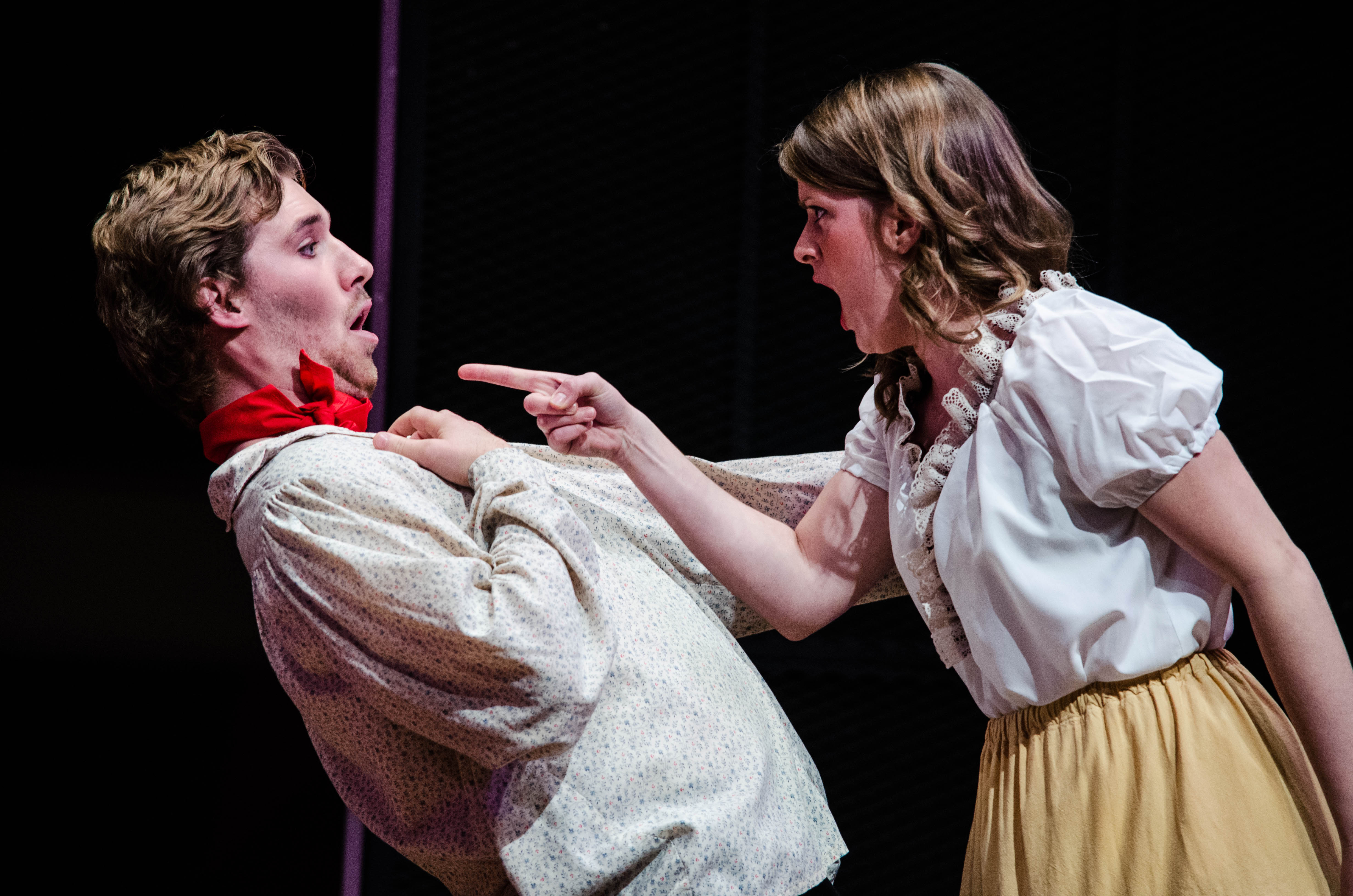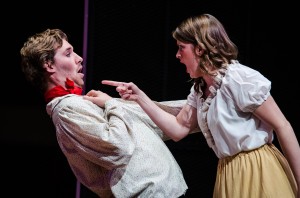Dreams and fantasies at a modern-day opera


Attending an opera performance on a Friday or Saturday night might sounds like a bore, rather than entertainment, however Opera Laurier defied traditional stereotypes concerning opera and delighted the audience on November 9 at the Maureen Forrester Recital Hall.
“People have a lot of built-in assumptions about what opera is,” said Kimberly Barber, the coordinator of opera at Wilfrid Laurier University. “I think a lot of people have expectations of what they’re going to get and they maybe even have a resistance to it because they think ‘oh, it’s going to be in a foreign language and I’m not going to understand it.’”
Opera Laurier works hard to defy these expectations and make opera accessible for both students and the community as a whole.
“A lot of times we do things in translation, the last couple of years we’ve had simultaneous translations with the subtitles above [the stage],” explained Barber. “Also, we do a lot of things in English because we realize it’s really important for the audience to understand.”
While three of the six opera excerpts that made up the show were sung in foreign languages, they all had translations that made it easy for the audience to understand.
Having six vastly different excerpts, as opposed to one long storyline, also helped keep the audience interested and involved. Many don’t realize that opera performances are musicals that contain a storyline; they are not just a mash of random songs.
“One scene might be a comedy, another might be a tragedy, another might be in a very classical style, another might be in a more modern idiom,” said Barber.
With so much variety, there was something for everyone in the audience to enjoy. The performance’s unique theme of dreams, fantasies and delusions allowed for the combination of these very different six scenes.
“If you just said dreams, it might be less easy to find a common thread than if you say dreams, delusions and fantasies,” added Barber. “Then you get the idea of the different kinds of aspects and kinds of dreams and how dreams can morph into something else.”
The effort that goes into the music selection of an opera performance is tremendous. Opera isn’t just about the music, there are a lot of other aspects to an opera performance that many people don’t realize. The performance featured not only singing and acting, but poetry as well. Between scenes, a member of the cast would recite a poem about dreams, fantasies and delusions as a transition into the next scene.
Leslie De’Ath, the musical director at Opera Laurier, also emphasized the complexity of an opera performance.
“Being a multi-media genre…there’s a lot behind the scenes that goes into a show because so many different aspects have to be all coordinated: lighting, the stage, the acting, the costumes, the music,” he explained. “The moment you have three or four different media all to coordinate, it becomes, first of all, more complex and, second of all, more expensive.”
Opera Laurier’s next performance, entitled Guiiwedin, will be done in collaboration with Laurier’s Aboriginal Initiatives Committee and the Aboriginal Centre. It runs from February 28 to March 2.

